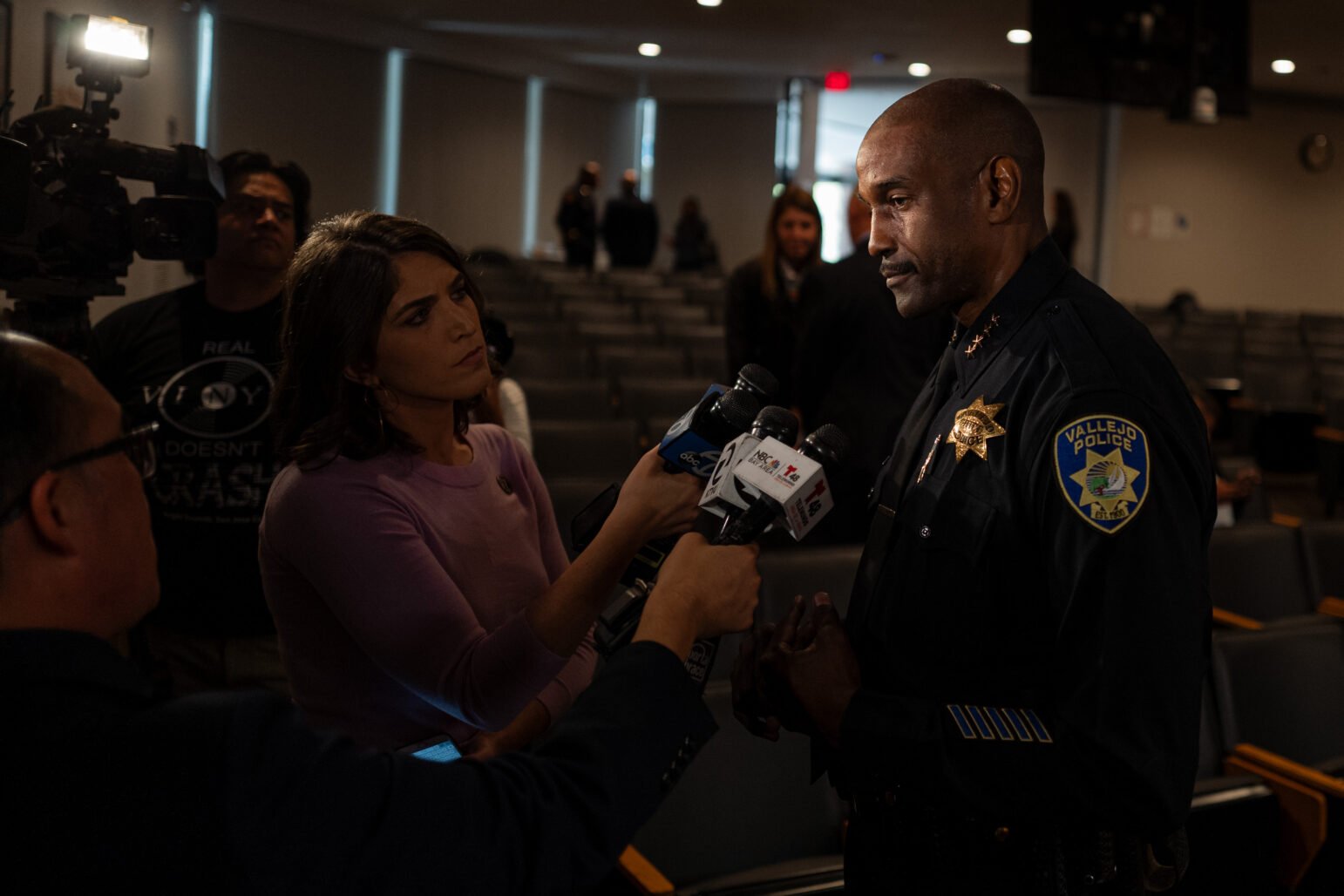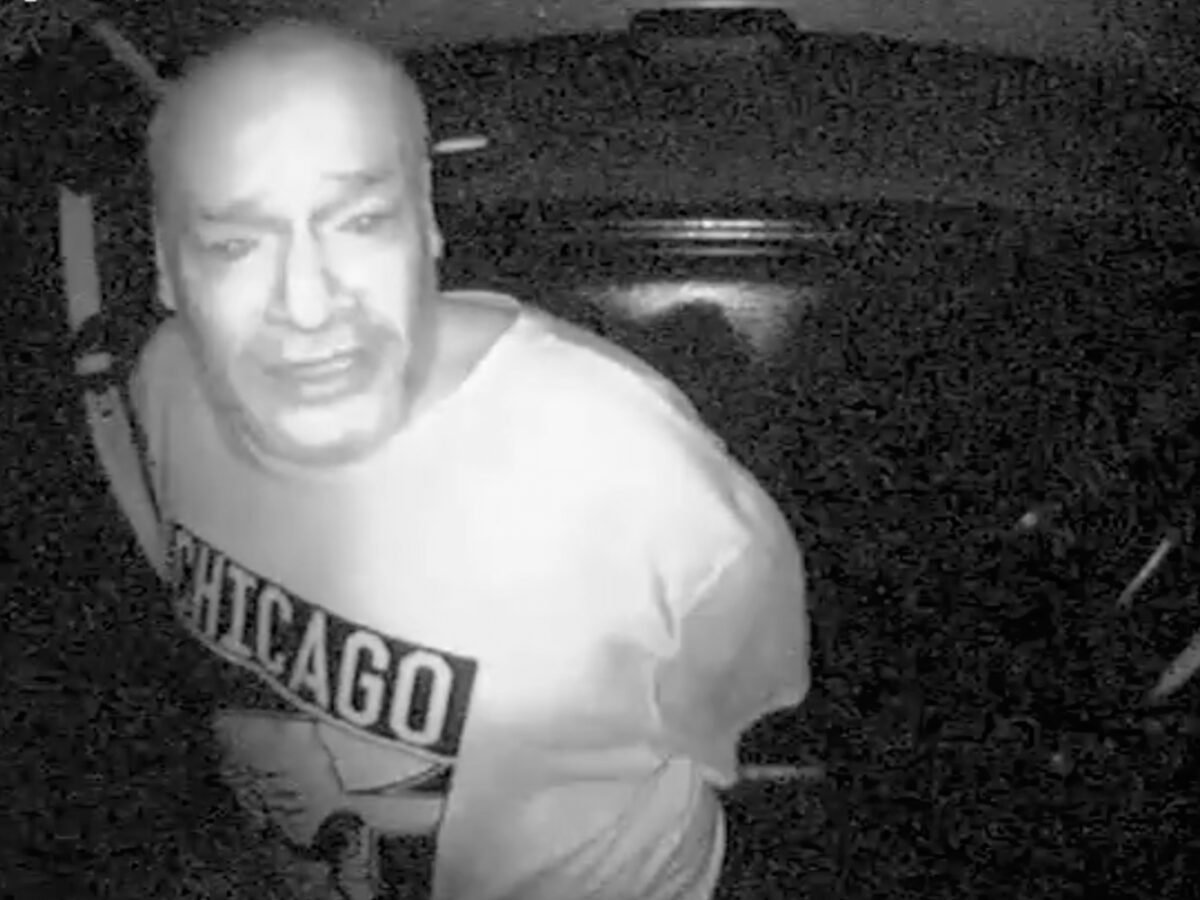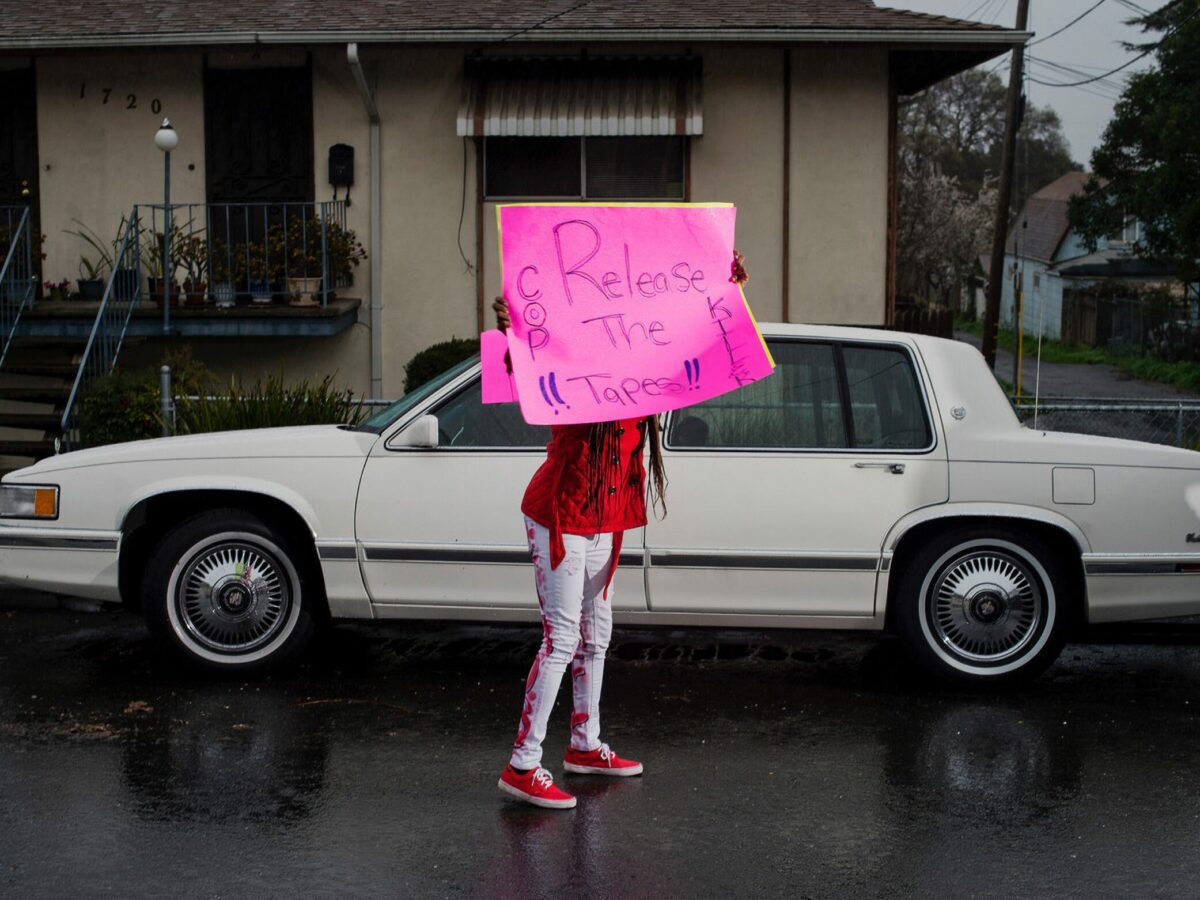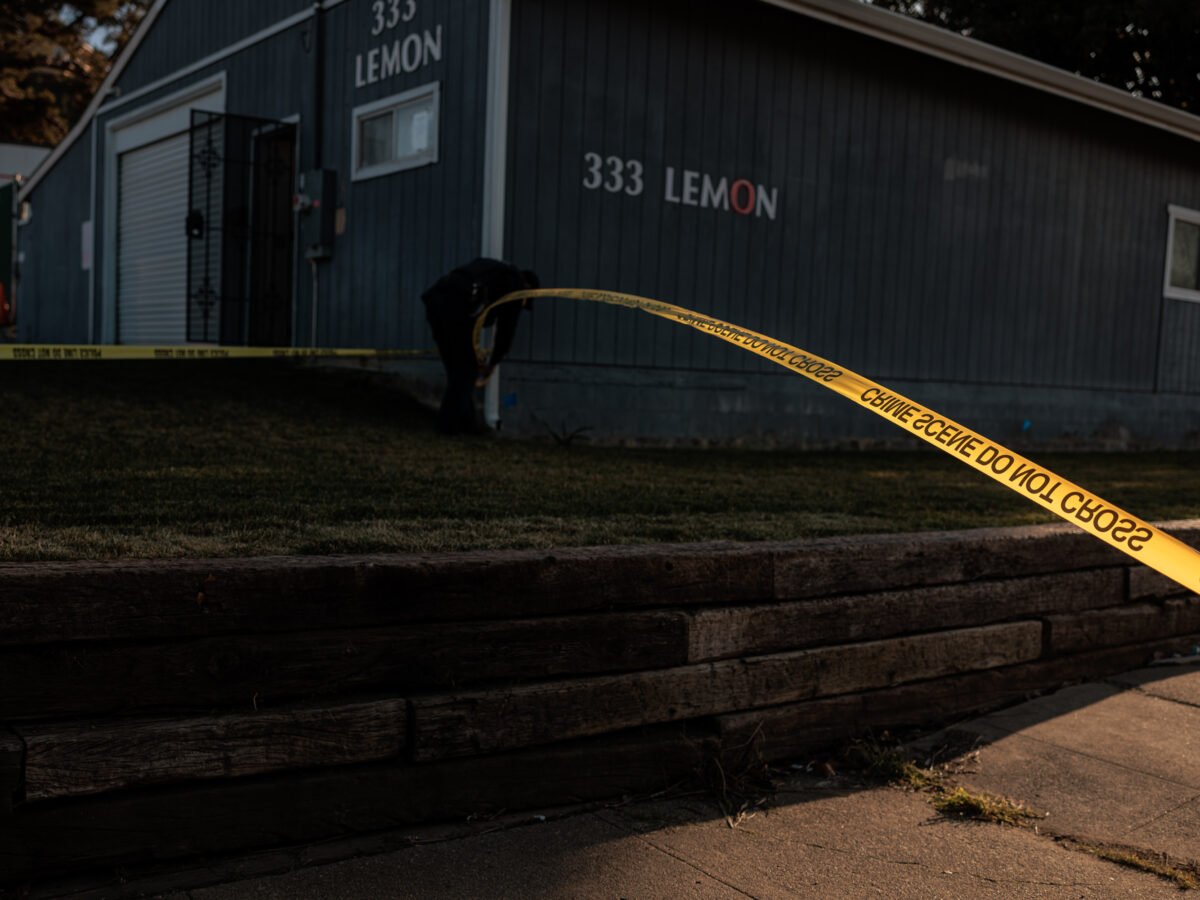
Vallejo’s first Black police chief left the department over safety concerns following racist hostility from officers under his command and several anonymous threats that the city failed to address, according to deposition testimony released Wednesday.
The testimony, by former Vallejo Police Chief Shawny Williams, is the latest in a series of allegations by former senior officials who say they were harassed or threatened after raising concerns about the city’s practices. Unlike those former officials, several of whom settled wrongful termination lawsuits totaling millions of dollars, Williams’ allegations occurred amid an unrelated civil rights case that began before he became Vallejo’s police chief.
Williams testified on Oct. 28 that he reported numerous threatening emails and letters to city leadership and human resources, who he said never opened an investigation. He repeatedly shared his concerns with former City Manager Michael Malone, but was rebuffed each time, according to his testimony.
“‘They’re not going to stop until I fire you or you quit,’” Williams recalled Malone telling him. “And he said that over half a dozen times.”
Malone declined to comment on the allegations when reached by phone Friday. Williams and his attorney, Jamon Hicks, did not respond to requests for comment.
Within the last three years, Vallejo has paid out nearly $4 million to settle wrongful termination lawsuits from senior city and police staff, including former Police Capt. John Whitney and Slater Matzke, who was an advisor to former City Manager Greg Nyhoff. (Matzke is married to Vallejo Mayor Andrea Sorce.) Whitney and Matzke claimed Nyhoff fired them for blowing the whistle on alleged misconduct in the police department and City Hall, respectively, and that the harassment began soon after.
Other former Vallejo officials are currently suing the city for wrongful termination and related claims. They include former Deputy Police Chief Joseph Gomez, who alleges in a lawsuit filed earlier this year that he was “subjected to a pattern of harassment” during his nine months with the department, and that subordinate officers “engaged in what amounted to stalking behavior.”
In his deposition, Williams testified that he received several anonymous, threatening communications.
For example, Williams described receiving a prank Halloween card in October 2022. When a secretary opened the card, it emitted “a loud screeching sound that filled the hallway” outside Williams’ office, leading him to believe someone was being assaulted outside. The anonymous sender also wrote that Williams should immediately resign, he testified. Open Vallejo reported on the allegedly threatening communication shortly after Williams resigned in 2022.
Williams testified that he had the card booked into evidence and the incident documented in a police report.
Williams also testified that he received multiple letters at his home and another property he owned out of state. He recalled one letter that mentioned the reinstatement of Vallejo Police Det. Jarret Tonn, whom Williams fired in 2022 over the killing of 22-year-old Sean Monterossa two years earlier. Williams said the letter warned him to “Wait ‘til PORAC gets a hold of this,” referring to the Peace Officers Research Association of California, a statewide advocacy organization, and that “bad things were coming my way.”
In another instance, a tenant living in a rental property opened an obscenity-riddled letter to Williams accusing him of having “destroyed” the department. Williams also testified that he received “maybe a dozen” anonymous, threatening communications sent through the privacy-protective email service Proton Mail. (In 2020, Open Vallejo received a series of threatening messages sent via the same service, which this newsroom reported to the FBI.)
Williams also testified that members of the department command staff, including former police union president Lt. Michael Nichelini and former Capt. Joseph Iacono, made racist statements about him that he eventually reported to the city. Williams did not go into detail about those comments in his deposition.
Williams also testified that Iacono told him staff had looked up his home address during a wave of protests following the Monterossa shooting, adding that he believed it was Iacono himself who searched for the information.
In July 2022, the police union announced a no-confidence vote in Williams, with 73 of 75 officers voting against him, ABC 7 reported at the time. He resigned that November.
Nichelini, Iacono and the Vallejo Police Officers’ Association did not respond to requests for comment.
‘That would be a crime’

Williams’ testimony is part of an ongoing civil rights lawsuit in the case of Deyana Jenkins, who was dragged out of her car and tased by officers Jordon Patzer and Colin Eaton in April 2019, after she allegedly failed to produce her driver’s license during a traffic stop. Jenkins is represented by local civil rights attorney Melissa Nold.
The Vallejo City Attorney’s Office typically represents former city employees who are called as witnesses in litigation. However, the city notified Williams earlier this year that it would no longer represent him in the Jenkins case, forcing him to hire private counsel, according to his testimony. Williams was initially supposed to testify on June 9, though the city canceled the deposition, according to court records.
Assistant City Attorney Katelyn Knight appeared at the deposition despite not having attended a proceeding in the Jenkins case since 2019, according to court records. Williams identified her as another source of alleged harassment.
“Who subjected you to harassment or threats in relationship to this deposition, if you can identify the person?” Nold asked Williams.
“Ms. Knight, Katelyn Knight,” Williams responded.
Knight told Williams not to answer any additional questions about her alleged intimidation, citing attorney-client privilege. Nold contended that the attorney-client privilege does not apply to witness intimidation because it is a crime. The attorneys argued the point briefly before Nold called for a judge to settle the dispute, according to the testimony.
“If the intimidation consists of giving legal advice about a matter, however it is perceived, yes, that is squarely covered by attorney-client privilege,” Knight said during the deposition.
“That you’re contending is legal advice, but he perceived as you attempting to threaten or intimidate him. That would be a crime,” Nold replied. “If you threatened or intimidated a witness to try to defer them from testifying, you would acknowledge that that’s a crime. Right?”
“I’m not going to have an argument with you about what the law is or what would or would not be covered,” Knight responded. “I’m objecting based on attorney-client privilege and instructing the witness not to answer.”
Williams testified that another representative of the City Attorney’s Office threatened him with retaliation while he was chief, but did not elaborate.
Knight denied wrongdoing in an emailed statement to Open Vallejo, on which she copied City Attorney Veronica Nebb and Chief Assistant City Attorney Randy Risner.
“There was no legally inappropriate conduct by counsel for the City. We are prohibited from discussing the contents of the communications at issue as those communications are subject to the attorney-client privilege,” Knight wrote.
The city declined to have the matter settled by an on-call judge, and the parties moved on to other topics. A portion of William’s testimony was made public because the parties filed a joint motion to settle the dispute relating to the City Attorney’s Office.
On Monday, U.S. Magistrate Judge Sean Riordan ruled that communications between Williams and Knight are presumptively covered by the attorney-client privilege, while leaving open the possibility that an exception may apply. He ordered the parties to jointly address the issue by Dec. 5.
This article has been updated to include comment from the Vallejo City Attorney’s Office.




